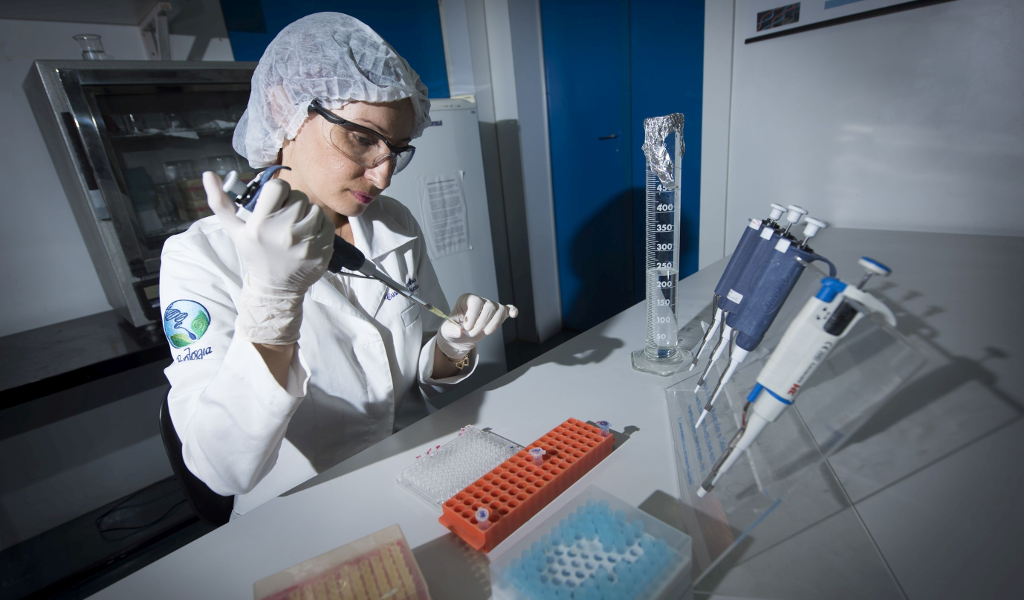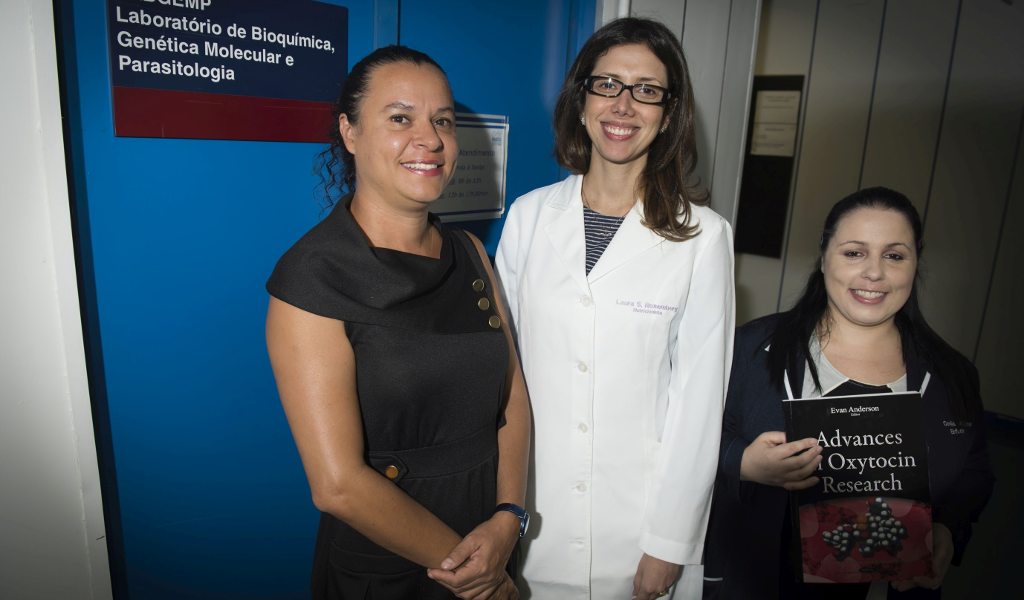Group looks into the role played by oxytocin in depression and in elderly behavior
Por: PUCRS Magazine No.3 Annual Issue in English/2016

Blood samples analyzed at the Biochemistry Laboratory, Molecular Genetics and Parasitology
Photo: Camila Cunha – Ascom/PUCRS
An elderly individual who has a good relationship network seems to be less prone to diseases or better capable of dealing with them. Social interaction makes you feel good. Everyone knows that. But the thing seems to be the release of the love hormone, oxytocin. That is why a lacteous compound is not enough for the diet of a newly born. Breastfeeding stimulates the production of the substance, which strengthens the connection between the mother and her baby and has an impact on their overall development. “Human nature is based on relationships and contacts. The elderly are supposed to encourage affective and social connections, by hugging and kissing friends and family members, and keep their sexual life active and pleasing”, stated Professor Maria Gabriela Gottlieb, a post-doc grantee from the Graduate Program in Biomedical Gerontology.

Pioneering group: Maria Gabriela (L) and PhD students: Laura and Camila
Photo: Camila Cunha – Ascom/PUCRS
The researcher and her PhD students Camila Jacondino and Laura Rosemberg, as well as PUCRS Professor Irênio Gomes and a Swiss psychiatrist, Armin Von Gunten, are part of a pioneering group in the country which is investigating the role of oxytocin and the polymorphism of the receptor gene of the depression hormone in the sexual and dietary behavior of the elderly. At the end of last year, the three of them published two chapters in the book Advances in Oxytocin Research, by Nova Science Publisher (USA).
To find out more about it, please visit PUCRS Magazine 2016 annual issue